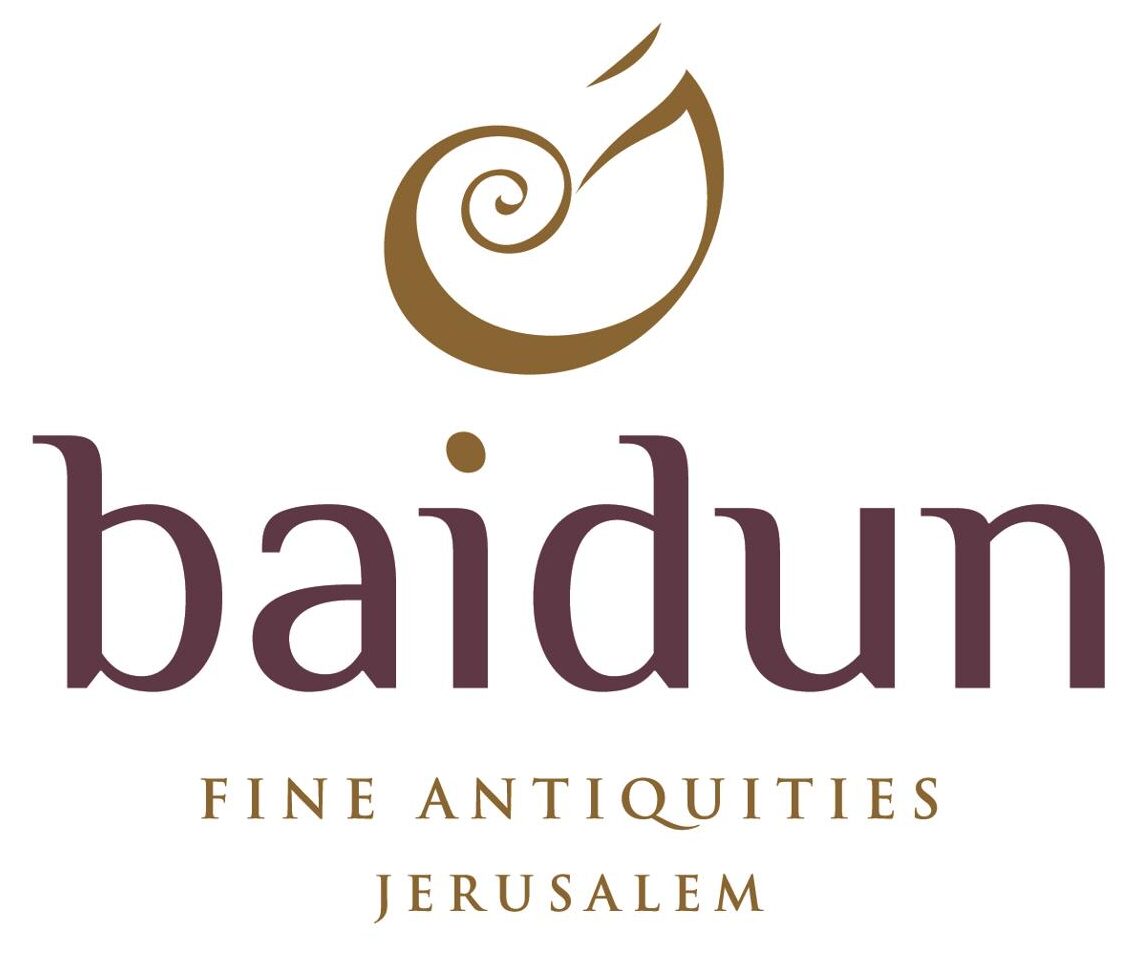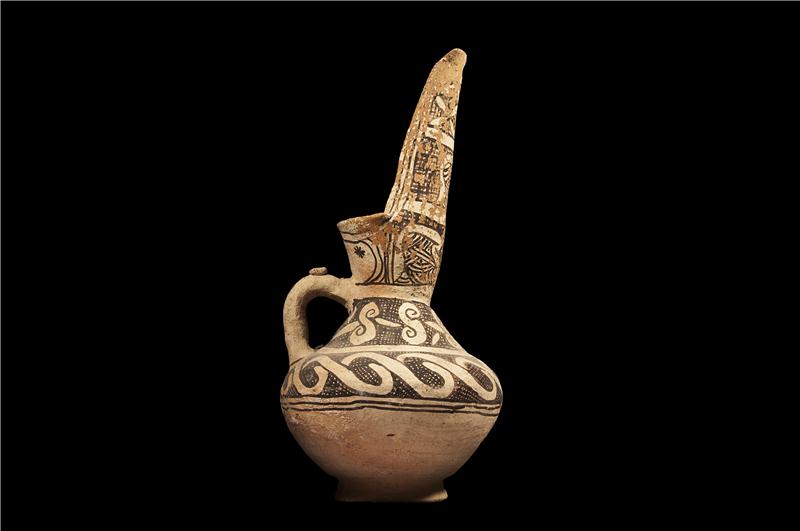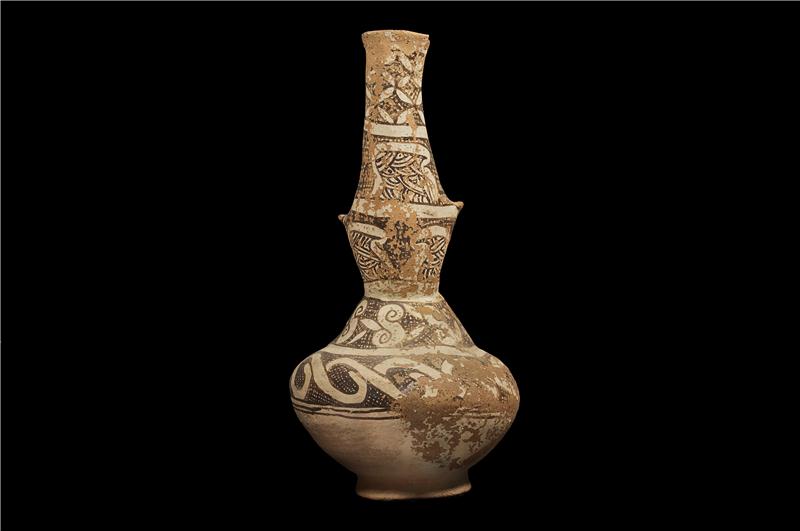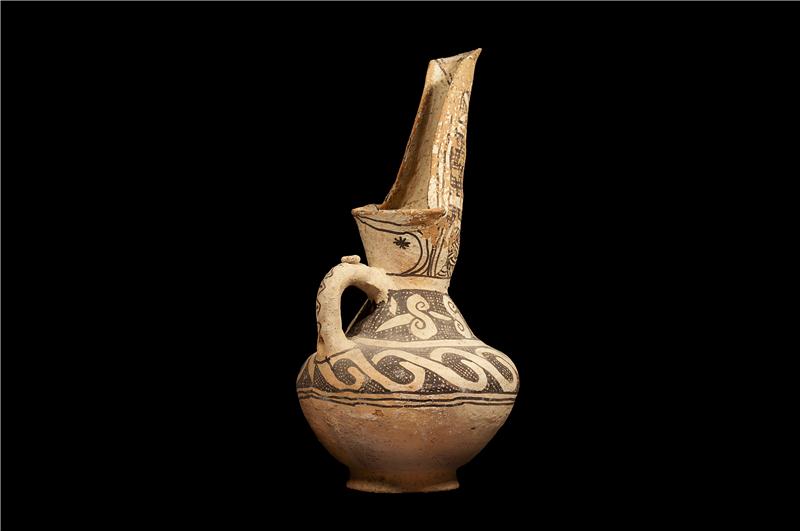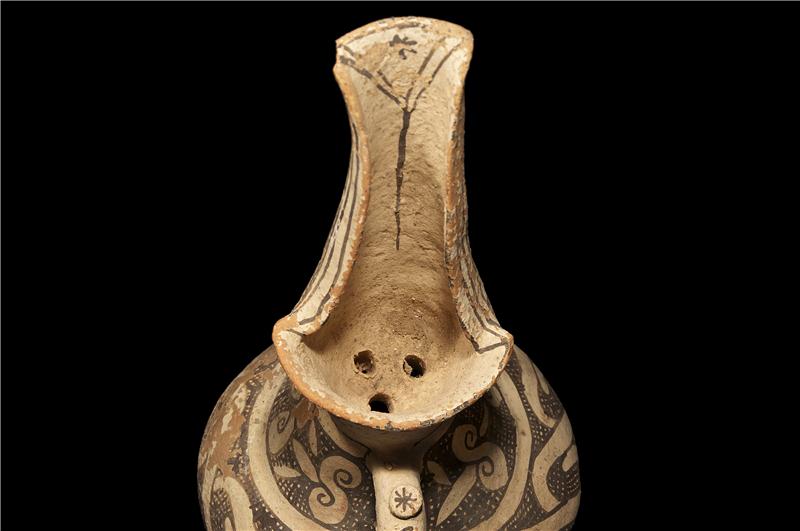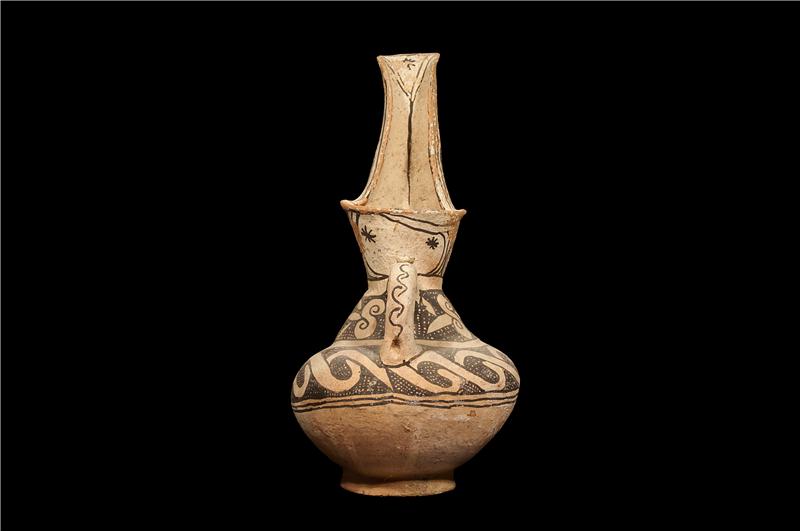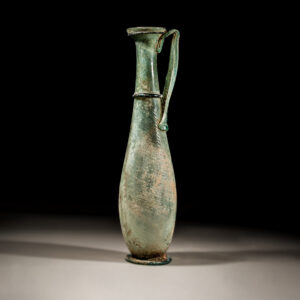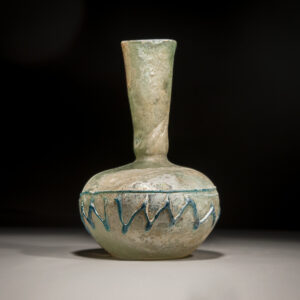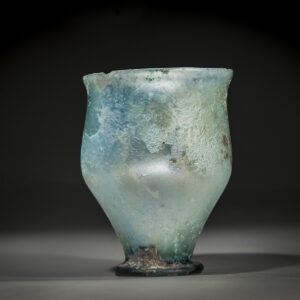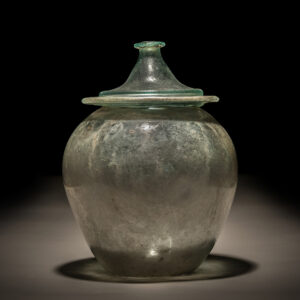This ewer is from the reign of the Ayyubid dynasty that ruled much of the Middle East for over a century starting in approximately 1100 C.E.. The Ayybuids were Islamic warriors who conquered parts of Egypt, Syria, northern Mesoptamia, the Kingdom of Jerusalem and the southwestern swath of the Arabian Peninsula. In such a region, water was essential in daily life, and the cool relief that this ewer brought was not lost on those who received a glass from its long spout.
This ewer is of a recognizable shape, although the elongated mouth and the three careful holes at the neck’s top show how water was guarded preciously from being wasted in the desert. We see distinct Islamic designs that closely resemble the fluid movement of Arabic calligraphy. The crude craftsmanship gives way to the ewer’s brilliant front, designed with such intricate lines and patterns so as to lift this everyday object up beyond the everyday into a truly beautiful piece of antiquity. The ewer dates from approximately 1000 C.E. – 1200 C.E. and is 28 cm in height.



